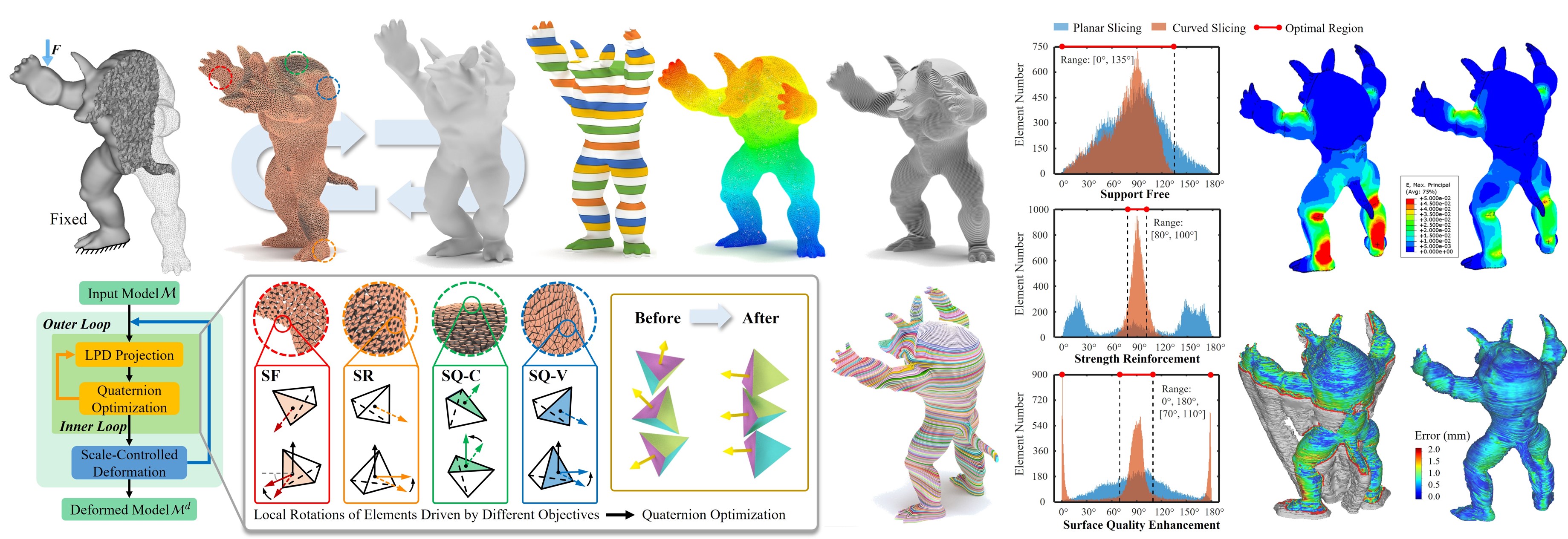Multi-axis motion introduces more degrees of freedom into the process of 3D printing to enable different objectives of fabrication by accumulating materials layers upon curved layers. An existing challenge is how to effectively generate the curved layers satisfying multiple objectives simultaneously. This paper presents a general slicing framework for achieving multiple fabrication objectives including support free (SF), strength reinforcement (SR) and surface quality (SQ). These objectives are formulated as local printing directions varied in the volume of a solid, which are achieved by computing the rotation-driven deformation for the input model. The height field of a deformed model is mapped into a scalar field on its original shape, the isosurfaces of which give the curved layers of multi-axis 3D printing. The deformation can be effectively optimized with the help of quaternion fields to achieve the fabrication objectives. The effectiveness of our method has been verified on a variety of models.
Source Code is available!

Pipeline for curved layer generation
- A tetrahedral mesh M with principal stresses obtained from FEA represents the input armadillo model.
- A rotation-driven optimization is computed by rotating elements to satisfy the SF, SQ, and SR objectives locally and then assembling the rotated elements globally to obtain a deformed model. These local/global steps are run in iteration to obtain the deformed model M𝑑, where the compatible rotations applied to elements are computed by optimizing a quaternion-field Q as the inner loop of optimization.
- The height field of M𝑑 is mapped to a scalar field G(·) defined on M.
- The isosurfaces of G(·) are extracted to work as curved layers.
- Toolpaths are generated on curved layers for 3D printing.

Contact:
Tianyu Zhang (zhangty019@gmail.com)